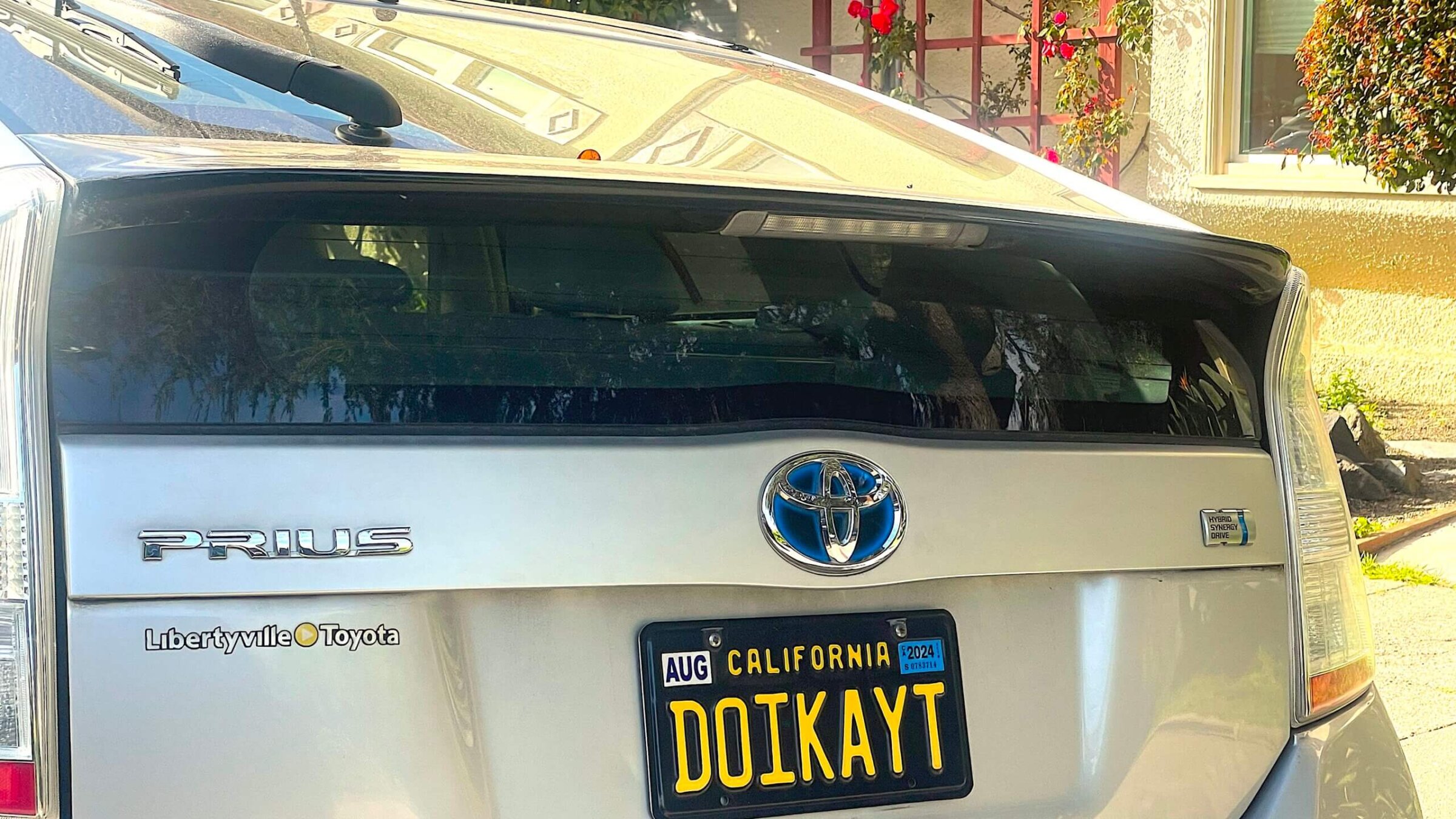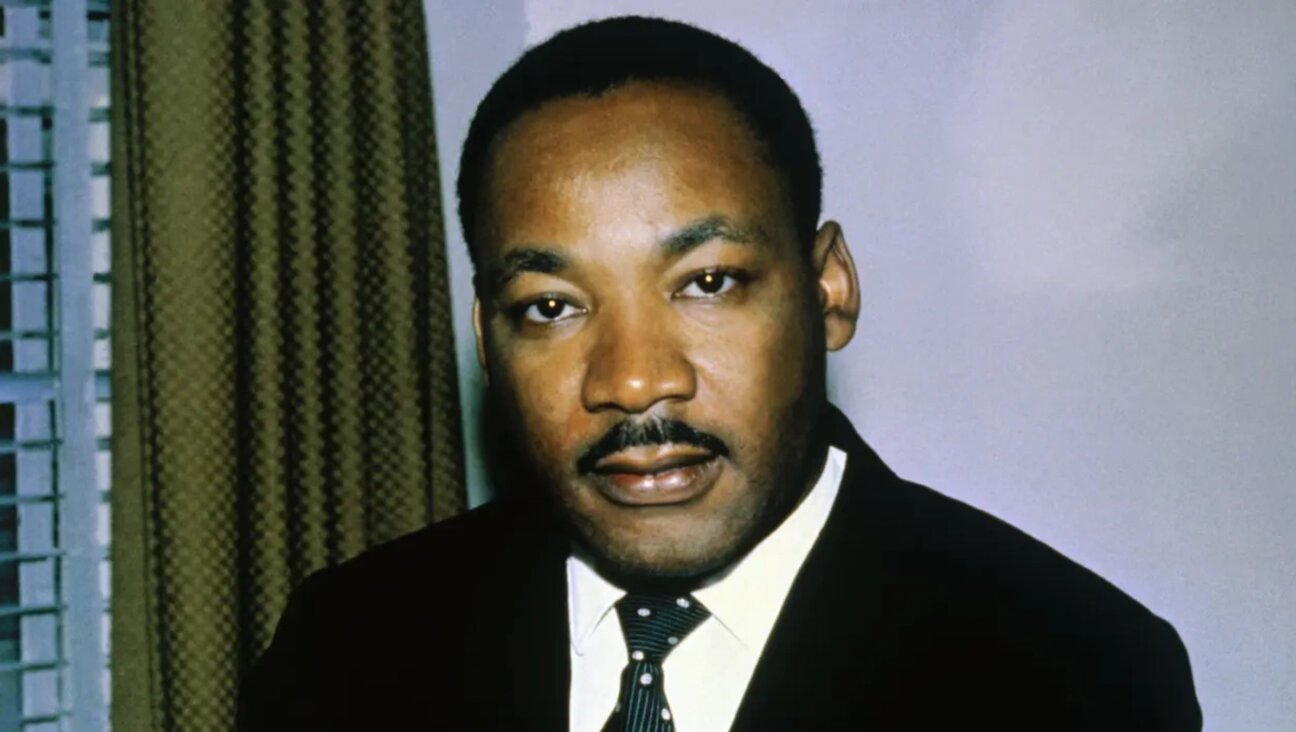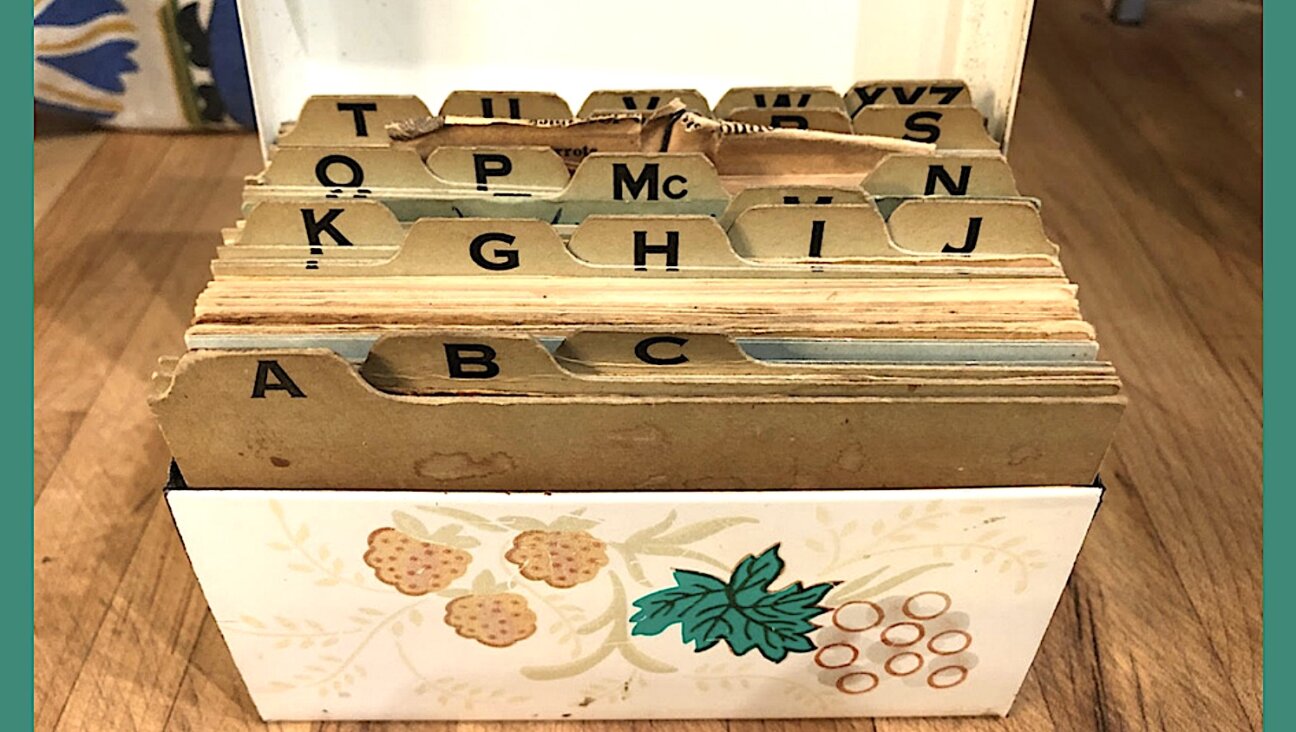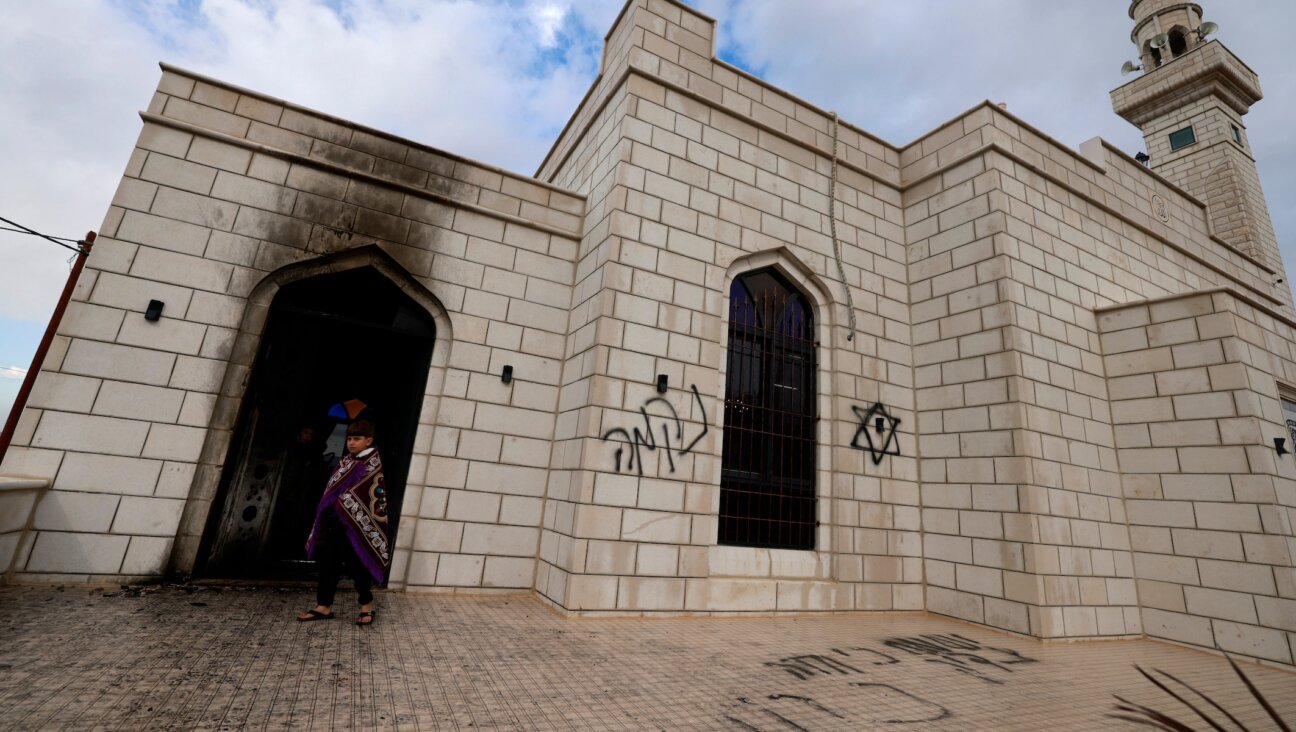A Yiddish word I never expected to see on a license plate
For secular Jewish socialists in prewar Poland, ‘doikayt’ wasn’t just a word, but a bold political statement

Photo by Kyla Kupferstein Torres
When I saw the license plate, I nearly crashed the car.
The gray Prius, parked three blocks from my house in Oakland, California, had a Yiddish word on its license plate. But not just any Yiddish word, like shlep or chutzpah. It said doikayt.
The word, or rather the concept, of doikayt (pronounced do-i-kayt), means “hereness” — the idea that we Jews can and should stay wherever we are, alongside people from all different cultures; that we need not escape to a physical homeland of our own in order to thrive as Jews.
The word was coined around the year 1897 with the founding of the secular Jewish organization, the General Jewish Labor Bund, and served as a contrast with the “thereness” of yearning, or actually moving, to Palestine. Ironically, the Zionist movement was launched in the same year as the Bund. Both movements became popular among the Jews of Eastern Europe, particularly in the large cities, both before and after World War I.
The fact that someone in Oakland chose this word for his or her license plate astounded me. Could there be someone in Oakland who, like me, was raised by a Bundist, Yiddish-speaking family? Could it be someone here in my neighborhood? I snapped a quick photo of the plate and sent it to my aunt and some of my late father’s friends from his summer camp days.
I also wrote a quick note for the driver, and stuck it on the windshield.
I didn’t grow up actually hearing the word doikayt, since the only Yiddish I knew was from listening to my father and grandparents speak to each other. My Buba and Zayda, who were born and raised in Poland before the war, were members of the Bund. My Zayda often told me that he thought religion was chief among the evils of the world, and served as a powerful force for separating people from each other. My father believed this too. I knew this about them but I never gave the Bund too deep a dive until I was much older and began working on a memoir, trying to put the lost pieces of my heritage back together.
As I wrote, I felt ignorant. I didn’t understand even the basics of what had been the backbone of my grandparents’ lives. When Hitler was about to invade Poland in 1939, they fled to the Soviet Union, thinking that they’d find the kind of socialism they believed in there. What they actually found was a prison cell in Stalin’s Siberia. Ironically, their imprisonment for the crime of being Jewish was what protected them from the fate that awaited the family they left behind in Poland, all of whom perished in Hitler’s camps.
In trying to piece their story back together, I went hunting online to learn more about what the Bund actually was. One site mentioned two organizations I knew well: Camp Hemshekh (which means continuity), the summer camp my grandparents helped found (and where my father was a popular swim counselor), and Unzer Tsayt, the Bundist magazine my Zayda, a printer by trade, worked on in his shop, along with the Forverts.
The entry also explained what doikayt was: “The concept of doikayt was central to the Bundist ideology. The Jewish Labour Bund did not advocate ethnic or religious separatism, but focused on culture, not a state or a place, as the glue of Jewish nationhood, within the context of a world of multicultural and multi-ethnic countries.”
Doikayt was an articulation of a secular Judaism I hadn’t been explicitly taught, but nonetheless been raised on. A version of Judaism that allowed my father to step beyond his own community to find love with and marry a Black Jamaican woman. A Judaism that told my grandparents that they had to push past their discomfort and objections to my parents’ union, and come to embrace my mother. A Judaism in which I could eventually find myself, and make my place, as a woman who was both Black and Jewish. To me, doikayt meant being Jewish, in all of my and the world’s complexity.
The next morning I got a text from the owner of the Prius, whose name was Danny. “Thanks for your lovely note! I’m so relieved it’s not a ticket. I’d love to get coffee with a fellow Jewish leftist rooted in Yiddishkayt.”
I called him immediately. He told me he grew up in a Reform Jewish family in Chicago and when he started exploring his Jewish and political identity, he discovered the Bund. Its tenets spoke to him deeply. He learned Yiddish. He went on to become an organizer with progressive and leftist Jewish organizations. In his life in Oakland he connected to a multicultural Jewish community, where he met his present girlfriend, Gen, who is Chinese and Jewish, and has written for the Forward. I told him that in a few weeks my friend Jenny — another daughter of the Hemshekh community and a Yiddish speaker — would be coming down from Sonoma: Would he join us for a shabbes meal?
When Danny arrived, his arms were full with my favorite challah (sesame) from my favorite bakery and a heavy, well-wrapped package. “Something to look at after dinner,” he said to Jenny and me.
I popped a bottle of champagne in honor of our meeting. We lit the candles, said the blessings, and shared a meal of cauliflower stew and salad. After second helpings and anguished conversation about the war in Gaza, Gen arrived to join us for dessert and Danny brought his package to the table.
It was a well-worn first edition of Di Farshvundene Velt (The Vanished World), a book of photographs of Jews across Eastern Europe in the decades before the Holocaust. Published in 1947 by the Forward Association, it included photographs sent in by readers of the Yiddish paper.
We crowded around the book as he turned the pages carefully to protect the fragile binding. There were black and white images of a Bund convention in Riga and a demonstration in Warsaw, but I stopped him on one page titled “A Fish Market.” In it, you see women with baskets, maybe scowling at each other, maybe squinting in the sun. A man, possibly the fishmonger, with a cap straight off of Tevye’s head, was working a water pump.
There was no particular focal point or anything remarkable about the photo at all. But at the bottom of the page it identified the place: Otwock (pronounced “Otvotsk”), the town on the outskirts of Warsaw where my grandparents grew up. My breath caught. Could one of those people, just milling around the market, be my relative? Maybe her, with the frizzy halo of hair, her shawl wrapped tightly across her chest? Maybe that could be my great-grandmother Kyla, the one I’m named for? I’ll never know what she looked like.
We sat turning the pages, knowing that too many of the people in the photos died soon after their images were taken, in a ghetto or in a concentration camp. But the four of us leafing through the album are here, now. We are here in the complexity of our viciously divided country, of the wars that rage overseas and turn our relationship to who we are as Jews inside out and upside down. We are here, grappling with what it means to be Jewish in a world where the centers of power have shifted profoundly since the days those women stood in that fish market in Poland.
We sat together for a moment in silence, knowing there is nowhere else we need to be.
A message from our Publisher & CEO Rachel Fishman Feddersen

I hope you appreciated this article. Before you go, I’d like to ask you to please support the Forward’s award-winning, nonprofit journalism during this critical time.
At a time when other newsrooms are closing or cutting back, the Forward has removed its paywall and invested additional resources to report on the ground from Israel and around the U.S. on the impact of the war, rising antisemitism and polarized discourse.
Readers like you make it all possible. Support our work by becoming a Forward Member and connect with our journalism and your community.
— Rachel Fishman Feddersen, Publisher and CEO























